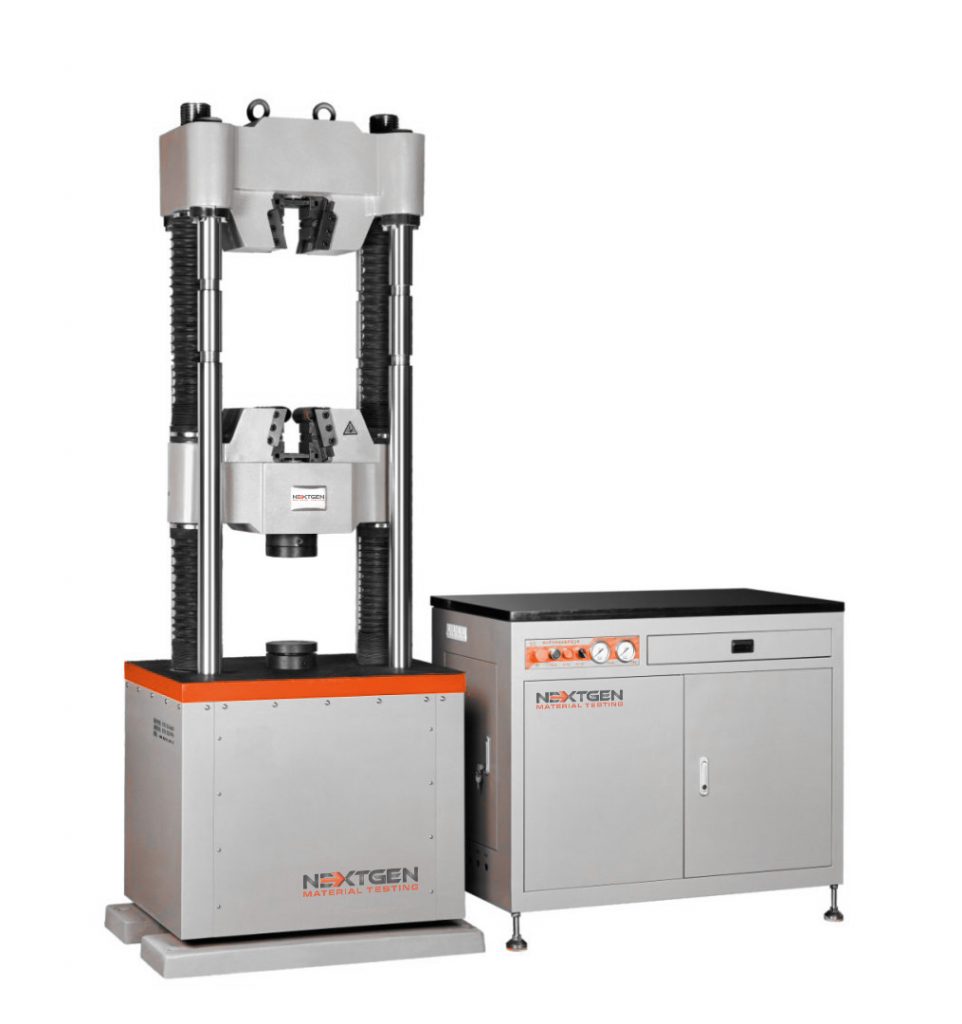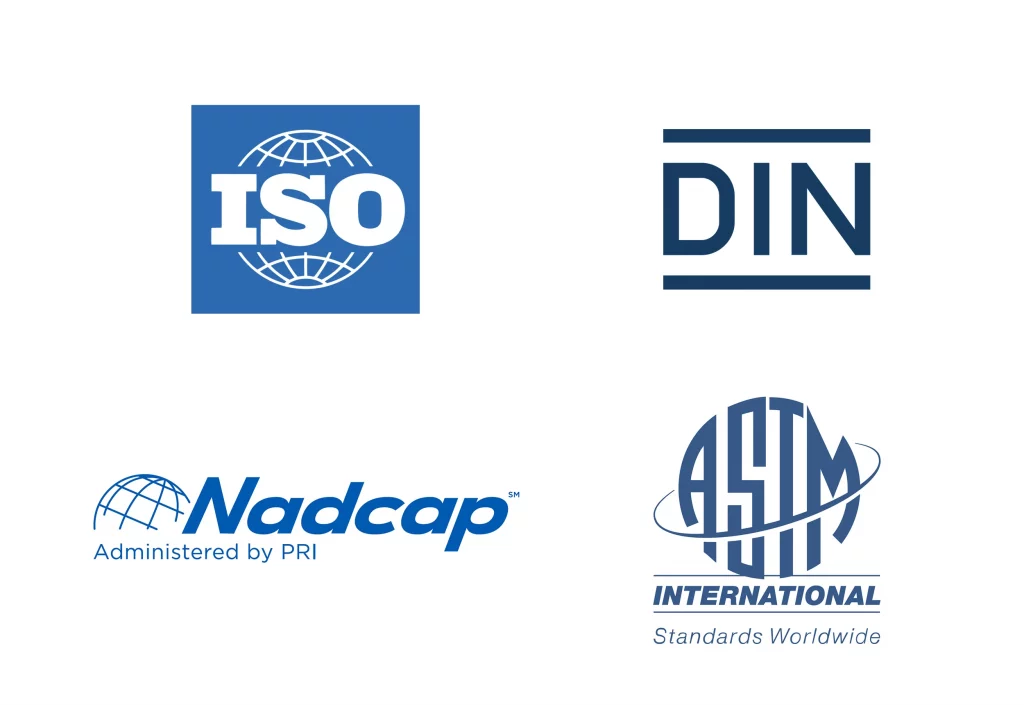Have you noticed that your material testing equipment has started giving inconsistent or unreliable results? Or perhaps you need to meet international testing standards and obtain official certification in order to work with larger clients or pass an upcoming audit? Both situations require appropriate certification and calibration.
At NextGen Material Testing, we specialize in the professional calibration and certification of an extensive line of material testing equipment. This covers both our own systems and third-party machines that are used in research, manufacturing, and laboratory settings. We provide services that facilitate compliance with numerous standards, including ISO, ASTM, NADCAP, and others.
In this article, we will show how our certification and calibration services help your material testing equipment meet international standards and deliver consistent, reliable results. We will outline the types of equipment we service, the standards we support, and how our process works from start to finish. In addition, you will gain an understanding of our assistance in audit preparation and in making sure that your laboratory remains in complete compliance with industry standards.
Why Certification Matters in Material Testing
Certification is the process of verifying that material testing equipment complies with international standards for traceability, reliability, and accuracy. It is applicable to a number of systems, such as vision systems, extensometers, hardness machines, and tensile testers. Certification is required to guarantee that the measurements obtained during testing are consistent and valid throughout all applications.
Test results may become unreliable when equipment is not certified. This can result in severe repercussions, including safety risks, rejected production batches, or failed audits. For instance, an uncertified impact testing machine may generate inaccurate force values, which could lead to the approval of a product that should have failed. Such errors can result in costly recalls or failed certifications from end clients.
Labs and manufacturers are able to achieve consistent and repeatable results through using certified equipment. A hardness tester that is calibrated in compliance with standards like ASTM E18 warrants that each sample is evaluated against identical performance criteria. This is especially important in production environments where strict material specifications must be followed.
Different standards apply to different types of equipment. In laboratories, ISO/IEC 17025:2017 is often used to verify calibration traceability and competence. The accuracy requirements for extensometers are outlined in ASTM E83. Universal testing machines are subject to force verification in ISO 7500-1. In the context of the aerospace and defense industries, NADCAP is implemented as part of the supplier approval process. Meeting these standards allows companies to prove compliance during client inspections or regulatory audits.
Additionally, the audit process becomes faster and more predictable when equipment is certified. Auditors can quickly confirm compliance when calibration records, traceable certificates, and standard references are accessible. This strengthens long-term business relationships with high-level clients, prevents unexpected discoveries, and minimizes delays.
What Equipment We Can Calibrate and Certify

We provide support for an array of material testing equipment that works in laboratory, production, and quality control settings. Our services apply to both newly installed systems and long-operating machines that require recalibration for accuracy’s sake. Below is an overview of the main equipment categories we handle:
-
Universal Testing Machines (UTMs)
Used for tensile, compression, flexural, and shear testing on metals, plastics, composites, and other materials. Available in both floor-standing and tabletop designs.
-
Force Measurement Devices
Includes load cells, proving rings, and reference transducers used across mechanical testing setups to measure applied force with high precision.
Covers all of the important types, including Rockwell, Brinell, Vickers, Knoop, Leeb, and microhardness testers. These devices assess the resistance of materials to deformation when subjected to a load.
Charpy and Izod testers are used to measure the energy absorbed by a material during fracture. These systems are essential in toughness and failure analysis.
-
Extensometers and Displacement Gages
Used to measure strain, elongation, and crack opening in tensile and fatigue tests. Systems may be clip-on, digital, or contactless.
-
Microscopes and Optical Systems
Includes metallurgical microscopes, trinocular imaging units, and vision systems used for structure analysis, surface inspection, and dimensional verification.
-
Torque Testing Equipment
Includes torque wrenches, transducers, and motorized benches used to verify fastener strength and rotational force in assembly applications.
-
Dimensional Measuring Tools
Includes calipers, micrometers, and dial indicators used for measuring length, width, thickness, or depth in precision applications.
-
Temperature Simulation Devices
Equipment such as thermocouple simulators and electrical signal generators is used to validate temperature measurement systems in industrial and laboratory use.
If your equipment type is not listed above, you can always contact us directly to confirm whether we can support your specific system.
What Certification Standards We Support
Now let us look over the testing standards we support in more detail. Each one has a direct connection to a particular kind of equipment or calibration procedure. Our certification services are based on these standards, which help guarantee that your machines stay accurate, compliant, and prepared for audit or production use.

ASTM Standards for Material Testing
In North America, ASTM standards are among the most commonly used for material testing. We certify equipment based on its type and intended use that complies with the applicable ASTM standard.
-
ASTM E4 for force verification of universal testing machines
-
ASTM E18, E10, E92, and E384 for hardness testing
-
ASTM E83 for extensometers and strain measurement devices
-
ASTM E23 and E1012 for impact and alignment calibration
-
ASTM A956 for portable Leeb hardness testers
-
ASTM E2428 and E2624 for torque testing systems
ISO Standards for Global Equipment Compliance
Businesses operating in global markets have to comply with ISO standards. They enable testing devices to fulfill internationally recognized standards for precision and efficiency. Supporting ISO certification enables our clients to comply with international quality standards, exhibit consistency, and meet export requirements.
-
ISO 7500-1 for verifying force measurement systems
-
ISO 148-2 for indirect verification of Charpy impact testers
-
ISO 6506-2, ISO 6507-2, and ISO 6508-2 for Brinell, Vickers, and Rockwell hardness testers
-
ISO 9513 for extensometer calibration
-
ISO 4545-2 and ISO 6789-2 for indirect verification of microhardness and torque devices
DIN, ASME, and Other Industry Standards
In specialized fields where high precision and clear documentation are required, industry-specific standards are frequently necessary. These standards support daily operations in manufacturing, electronics, and laboratory settings where even the smallest variations matter, whether they are used for temperature simulation, torque calibration, or dimensional inspection.
-
DIN 51309 for torque transducer calibration
-
ASME B89.1.14-2018 for digital, dial, and vernier caliper certification
-
ASTM E1951 for microscope calibration and magnification verification
-
Additel 222A for thermocouple simulation system calibration
ISO/IEC 17025:2017 for Laboratory Competence
This standard defines what it means for a testing or calibration laboratory to be technically competent. It covers everything from the calculation of uncertainty to the tracking of measurements. We help labs meet these rigorous standards and preserve reliable, certified workflows by collaborating with ISO-accredited partners.
ANSI/NCSL Z540-1-1994 for Measurement Traceability
This standard offers a strong starting point for traceable measurements and internal quality control in industries that rely heavily on calibrations. Clients who expect documented consistency in each test and calibration report often ask for it. Our services are in line with Z540-1 system requirements to assist with it.
NADCAP Requirements for Aerospace and Defense
An extremely specialized program called NADCAP checks if a supplier can meet the exacting quality requirements of defense and aerospace customers. By approving critical testing systems and supplying the technical information required for audit documentation and review, we assist businesses in getting prepared to face NADCAP audits.
How Our Certification Process Works
We provide a simple and dependable process that is intended to support both our equipment and machines from other manufacturers. We can assist in the verification of the performance of your system and the restoration of it to the necessary calibration standards, regardless of whether it is new, recently serviced, or has been in use for years.
The process begins with an initial inspection to assess the equipment’s condition and verify its readiness for verification. This involves the examination of mechanical components, load systems, or measurement tools, contingent upon the device’s type. We will proceed to the verification stage once the system has been verified to be operational.
Verification involves applying test procedures that match the equipment’s function—whether it is measuring force, strain, hardness, or displacement. We verify whether the readings are within the acceptable tolerance range based on this analysis. Depending on the machine type and standard, both direct and indirect verification methods can be used.
Once verification is completed, we present a comprehensive calibration report. This document contains a clear statement of compliance, reference values, and measurement data. All results are traceable and, where applicable, supported by our partnerships with accredited calibration laboratories. The documentation is prepared for use in internal quality systems, certifications, or audits.
Our procedure is intended to make sure that the testing equipment remains audit-ready and reliable without interfering with your workflow. We offer the data and confidence you require, whether you are preparing for a client inspection or maintaining routine compliance.
Ready to Certify Your Testing Equipment?
Maintaining certifications and calibrations for your testing tools is not only a formality. It is also necessary for producing accurate outcomes, meeting international standards, and confident audit pass-through. At NextGen Material Testing, we provide professional services for a wide range of equipment and support compliance with leading standards such as ISO, ASTM, NADCAP, and others. Whether your systems include universal testing machines, hardness testers, impact systems, or measuring tools, we assist in preserving their accuracy, traceability, and audit-readiness.
Please contact us directly or request a quote online if you require help or have questions regarding the certification and calibration services we provide. We are ready to assist you at any time.